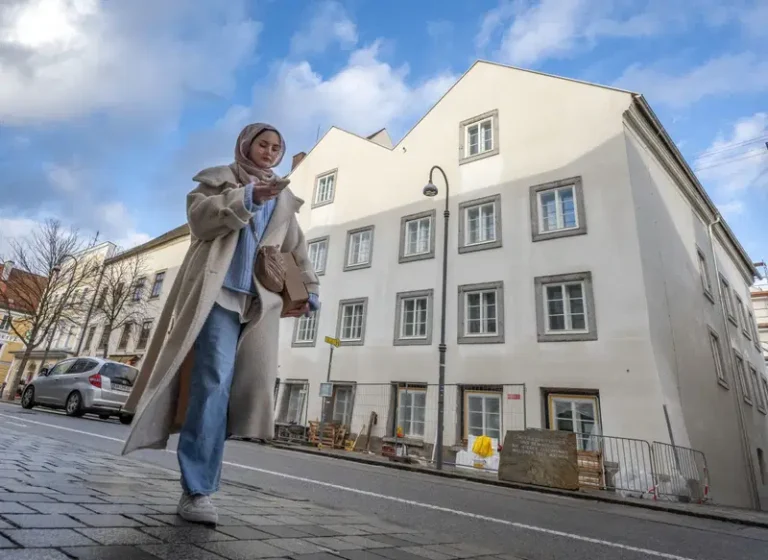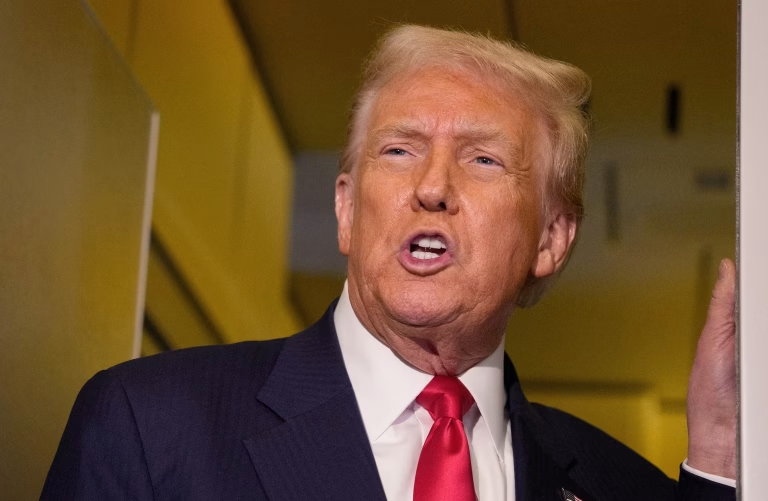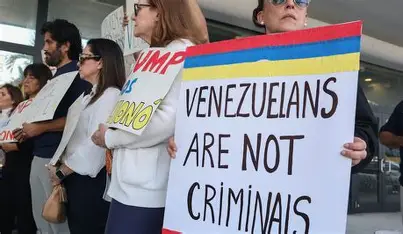
President Joe Biden speaks during an event on American manufacturing, in the South Court Auditorium on the White House complex, Monday, Jan. 25, 2021, in Washington. (AP Photo/Evan Vucci)
Over the next 10 days, the United States will achieve what President Joe Biden describes as “two giant goals” — the completion of 100 million coronavirus vaccine shots in people’s arms and 100 million checks in people’s pockets.
Those payments are among the disbursements from the $1.9 trillion coronavirus relief package the U.S. leader signed into law last week.
“The American rescue plan is already doing what it was designed to do – make a difference in people’s everyday lives,” Biden said Monday during remarks in the White House State Dining Room.
What his administration is promoting as the “Help is Here” tour began on Monday. It features the president and others, including Vice President Kamala Harris, visiting numerous states beginning this week to promote the benefits of the plan.
The appearances are intended to highlight to voters how the aid, approved by both chambers of Congress despite uniform Republican opposition, could help them. Republican lawmakers objected to the size of the deal and said that some of the funding is not tied directly to trying to end the pandemic in the United States.
“The American Rescue Plan includes a $350 billion bailout for states, rewarding those with poor fiscal management and punishing those who operated responsibly during the pandemic. Funds can be used for virtually anything a state chooses to spend money on, with next to nothing in terms of constraints or restrictions,” said Republican Senator Mike Crapo in a statement on Monday.
The ranking member of the Senate finance committee and his fellow Idaho Republican senator, Jim Risch, have introduced a bill to eliminate a provision in the legislation Biden signed that would prevent states from using relief funds to cut taxes.
Biden is scheduled to be in a key suburban Philadelphia jurisdiction Tuesday in the eastern state of Pennsylvania that he carried over former President Donald Trump in the November election.
His visit there is to “highlight how the rescue plan invests in small businesses,” White House press secretary Jen Psaki told reporters.
First lady Jill Biden went to the state of New Jersey on Monday where she joined Governor Phil Murphy at a school in Burlington.
“We are going to safely open schools. We are going to get people back to work. We’re going to lift up the families who are struggling to get by,” she said at the Samuel Smith Elementary School.
Harris traveled west to visit a COVID-19 vaccination site at the University of Nevada, Las Vegas and several other locations in the area.
The vice president was asked by a reporter why the administration is compelled to sell the plan, which enjoys widespread public support.
“It’s not selling,” Harris replied. “It’s kind of like you buy a product — you’re already sold on the product, but you need some directions out of the box.”
Both Biden and Harris are to make appearances in Atlanta, Georgia, on Friday.
Psaki, responding to reporters’ questions on Monday about the president’s travel this week.
The American Rescue Plan is one of the largest economic assistance packages in U.S. history and the first major legislative victory for Biden. It was approved solely with Democratic votes.
Biden and other Democrats plan to highlight that millions of adult Americans, all but those in upper-income tax brackets, will receive $1,400 stimulus checks, with tax credits for children. Billions of dollars are being sent to state and local governments and businesses that have been hit hard by the year-long pandemic. Additional aid is being spent to boost vaccinations of millions of Americans, where more than 535,000 Americans have died, according to data from Johns Hopkins University.
The president and his aides hope to highlight how much assistance is being spent in individual states. National polls have shown that the relief package has wide support, even among Republicans, but Biden is not taking its popularity for granted.
Democrats say they are mindful that in 2009, former President Barack Obama, under whom Biden served as vice president, spent little time promoting the $800 billion economic stimulus package that he and fellow Democrats helped push through Congress to help rescue the U.S. economy from the steep recession they inherited from Republican President George W. Bush.
Republicans, who mostly opposed the stimulus, captured the House of Representatives in the 2010 elections.
The White House is also planning to make surrogates and senior administration officials available for local television interviews in cities across the country and get more than 400 mayors and governors to talk about what the relief package means for them and their communities.
Congresswoman Liz Cheney, the House’s No. 3 Republican, said in a statement that only a small fraction of the $1.9 trillion deal was aimed at the virus and warned the relief package might eventually lead to tax increases to help pay for it. (VOA)







